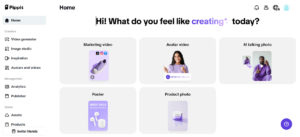As technology expands and business needs grow, global brands need to do their due diligence for mergers, acquisitions, or financial transactions. In the past, many enterprise businesses depending on physical data rooms for their sensitive documents and created a dedicated space for acquisition activity. Naturally, this is outdated due to the explosion of IoT connectivity, global business partnerships, and large-scale expansions. That’s why the virtual data room market is booming.
Virtual data rooms offer added convenience, access control, and security protocols that empower top brands and facilitate growth for burgeoning enterprising. A virtual data room can connect potential buyers and sellers, host data in a secure manner, and compute user activity, even in complex scenarios. Here are five reasons why any business needs an enterprise VDR to thrive.
- VDRs offer access control capabilities.
When you’re managing mergers, acquisition activity, and confidential documents all at once, it can be challenging to know when potential buyers, legal representatives, and financial professionals access certain confidential documents and deal files. A traditional data room also makes it challenging to ensure that only the appropriate parties access confidential documents at the correct times. With access control capabilities, an enterprise virtual data room empowers you to set permissions for specific users. That way, a financial advisor may access different intellectual property and data center files than an associate or legal assistant.
- A virtual data room provides you with activity logs.
When you’re waiting on another party during a merger, it’s always helpful to have ways to check on potential buyers, view deal progress, and keep up with workflow notifications. With a virtual data room provider, you can check when potential buyers and other users access individual files, how long they interact with the data room, and how long it’s been since their last login. This simple business function is essential to boost deal health, encourage potential buyers, or rethink your M&A structure. In addition, large enterprises depend on VDR solution activity logs to succeed.
3. Your VDR solution can streamline an IPO.
In general, going public with an initial public offering can overwhelm your workspace with the sheer amount of paperwork alone. Because an IPO requires such transparency and clarity during the offering period, you need to ensure that it’s easy for interested parties to access critical data. Large enterprises in North America and globally depend on the business function of a VDR solution to safely share sensitive documents amongst their shareholders.
4. A virtual data room solution benefits the audit process.
For any growing enterprise—in North America or worldwide—a virtual data room solution makes it much simpler to audit brand policies, procedures, and sensitive documents. External auditors and legal teams need quick, streamlined access to any necessary documents. Without a virtual data room solution, there’s a greater datasite risk, and you may not comply with current regulations, which can negatively impact your business’s standing. A virtual data room solution helps brands enforce regulatory compliance and minimize data risks.
5. VDR solutions help with fundraising and capital acquisition.
Growing enterprises need continued investments to stake their claim in their target market. However, many of these brands struggle with fundraising and need solutions that make it easier to acquire capital. Commonly, when you’re trying to entice investors, you need to share sensitive information and private documents to help convince them that your business is worth the money. With the virtual data room market, you can find solutions that make it easier to share information between stakeholders and investment prospects.
The virtual data room market benefits global businesses with security service and document-sharing capabilities that aid standard enterprise processes. In addition, by investing in the virtual data room market, you’re investing in long-term brand health.




